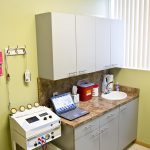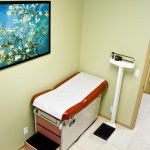
In my practice, patients sometimes puzzled by my line of questioning involving their relationship with their family members and social circles, also working environment and even financial situation in addition to the routine standard history taking. I solicit that information to gauge what I believe to be an important but often neglected wellbeing vital sign- their stress level. Especially for those patient that comes in with many deemed as “psychological” complaints such as chronic fatigue/low energy, low sex drive, Fibromylagia, irritable bowel syndrome (IBS); those with immune system related complaints such as frequent infections (upper respiratory, urinary tract infection, etc), allergy, and eczema; and patients with heighten cardiovascular disease factors involving
obesity, hypertension, and elevated glucose (pre-diabetes).
For two years in a row, the annual stress survey commissioned by the American Psychological Association has found that about 25% of Americans are experiencing high levels of stress (rating their stress level as 8 or more on a 10-point scale), while another 50% report moderate levels of stress (a score of 4 to 7). Perhaps not surprising,
given continuing economic instability in this country and abroad, concerns about money, work, and the economy rank as the top sources of stress for Americans.
Stress is also known as the “fight-or-flight” response because it evolved as a survival mechanism, enabling people and other mammals to react quickly to life-threatening situations (this comes in handy if you are chasing by a saber tooth tiger). Unfortunately, many factors of the modern day life also cause our body overreact to stressors that
are not life-threatening; it can be as simple as constant phone ringing (cell phones), traffic jams, demanding work pressure to varying degrees of personal financial and relationship issues. Unrelenting continue stress
perception cause series of hormonal signals to keep the sympathetic nervous system (“fight-or-flight”) to release epinephrine and cortisol; and blunting the parasympathetic nervous system (“rest and digest”) which acts
as a brake to dampen the stress response at its resolution (at the safety of their cave after
chasing by a saber tooth tiger).
Persistent epinephrine surges can damage blood vessels and arteries, increasing blood pressure and raising risk of heart attacks or strokes. Elevated cortisol levels create physiological changes besides increasing appetite that help to replenish the body’s energy stores that are depleted during the stress response. The process inadvertently
contributes to the buildup of fat tissue and to weight gain.
The parasympathetic nervous system is sometimes called the feed-and-breed system because it regulates more mundane processes that are vital for the maintenance of normal life. The functions of this system
include regulating digestion, including urination and defecation, sexual arousal, slowing the heart rate and lowering the blood pressure after the sympathetic nervous system has activated the fight or flight response. And depends on individual susceptibility, often the chronic heighten stress (sympathetic) coupling with the damping of
the parasympathetic manifest itself in varieties of gastrointestinal, sexual dysfunction, immunological and cardiovascular diseases. Obviously, for the hectic and stressful modern day life, the less time we spend in
the sympathetic response mode, the better. Anything we can do to keep ourselves in the “rest and digest” mode as much as possible is worth the effort, since our long-term health may depend on it.
To dampen the sympathetic (activate your parasympathetic) nervous system, learn what truly makes you feel relaxed. For some, this means engaging in a hobby, hanging out with friends, doing some light exercise and
engaging in active techniques like yoga, deep breathing and meditation. While waiting for the lifestyle changes to take effects, acute and even chronic sympathetic overdrive sufferers would be benefit from passive sympathetic damping/parasympathetic stimulating techniques such as osteopathic manipulation, acupuncture and acupressure
massage therapies (an intensive deep tissue massage at the acupuncture points). As always, please have a discussion and clearance with your doctor first before you start any of the passive stimulating activities. Stress related health issues and solutions
HEALTH & WELLNESS
BY DR. SIMON WONG
Dr. Simon Wong, D.O., practices
internal medicine at his office at 9750
NW 33rd Street, Suite 210 in Coral
Springs. To find out more about
healthy aging, contact




















